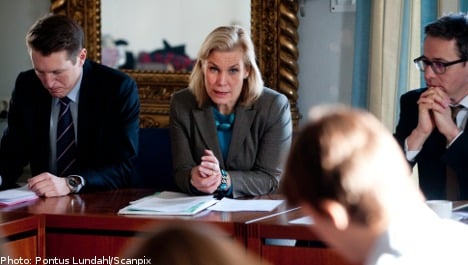But minister for international development cooperation, Gunilla Carlsson, is defending the practice.
“This isn’t something that we have started in recent days, it is part of a budget voted on and established by the Riksdag – it is both thoroughly debated and completely transparent,” she told news agency TT.
The total sum amounts to approximately a billion Swedish kronor ($153.5 million), of which 980 million is a claim on Congo.
About 50 million of this money is used to pay off the debt and the rest returns to the exchequer and can be used by the Swedish ministry of finance in any way they choose, according to TT.
But Gunilla Carlsson is adamant that the decision is in accordance with international regulations on how aid can be used.
Many aid organizations have complained against the way aid money is used to pay off debt. Often the loans were taken years ago by dictator regimes that never used it for aid in the first place but to finance military objectives or enrich the ruling families
But Carlsson thinks it is important to maintain credibility for state loans as a means to combat poverty.
“The ambition is that the loan can be repaid and that there is credibility in the loan as an instrument. It is important that we don’t cancel debts to hastily,” she told TT.



 Please whitelist us to continue reading.
Please whitelist us to continue reading.
Member comments